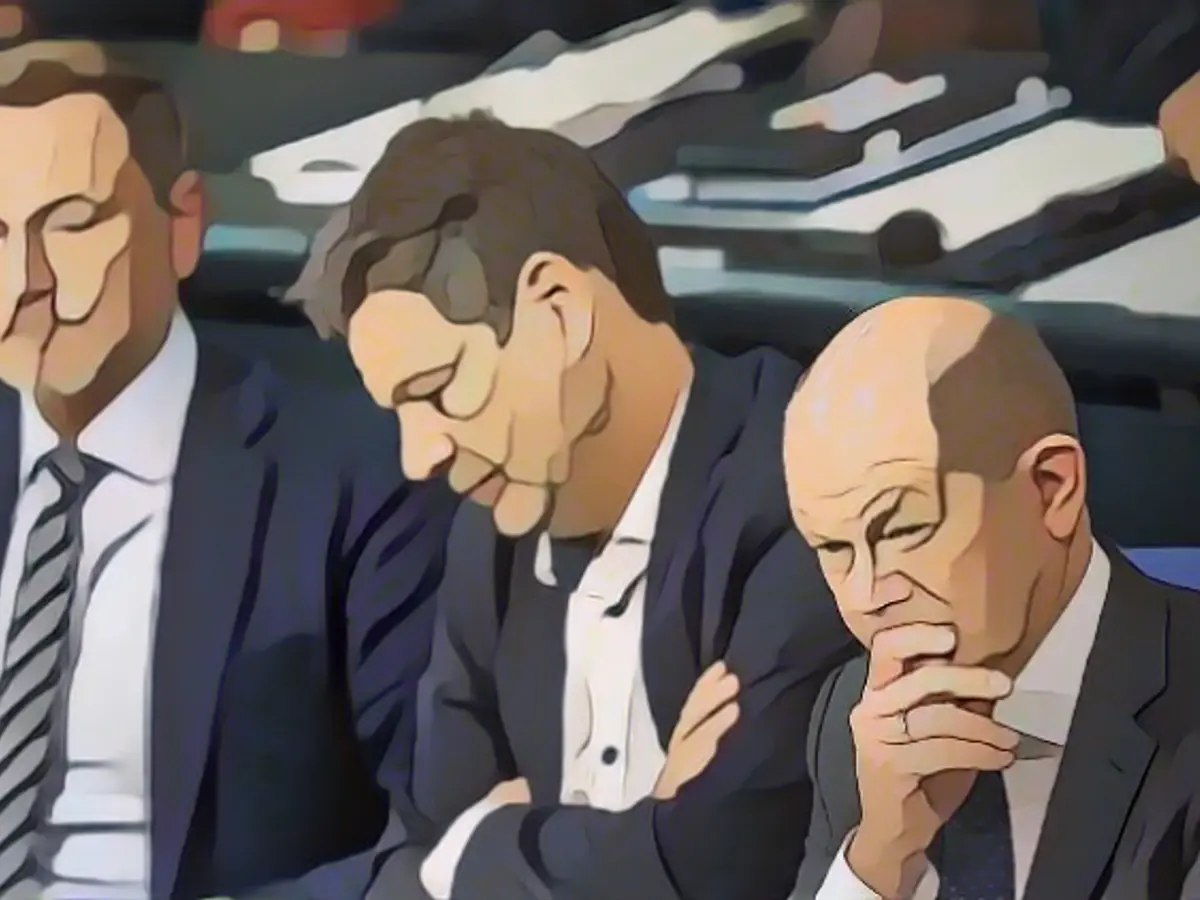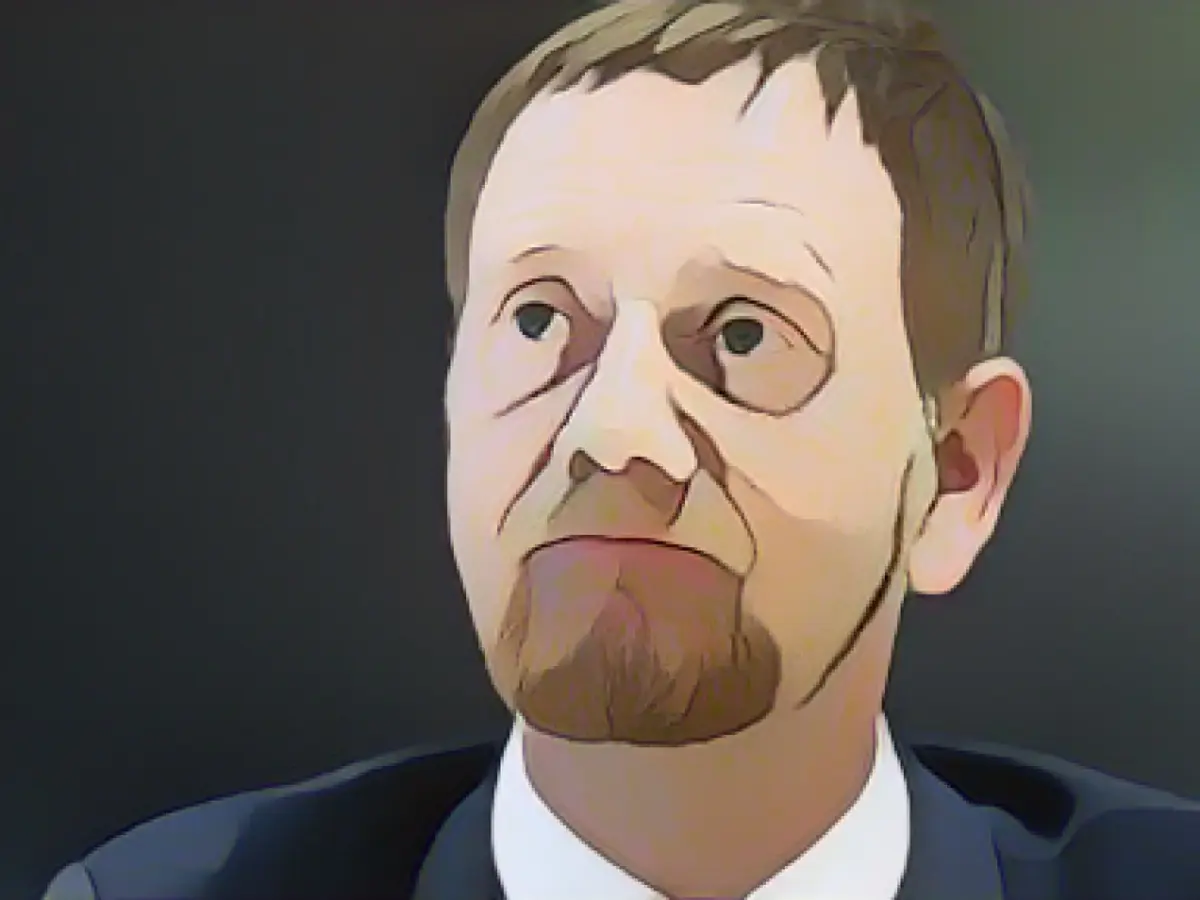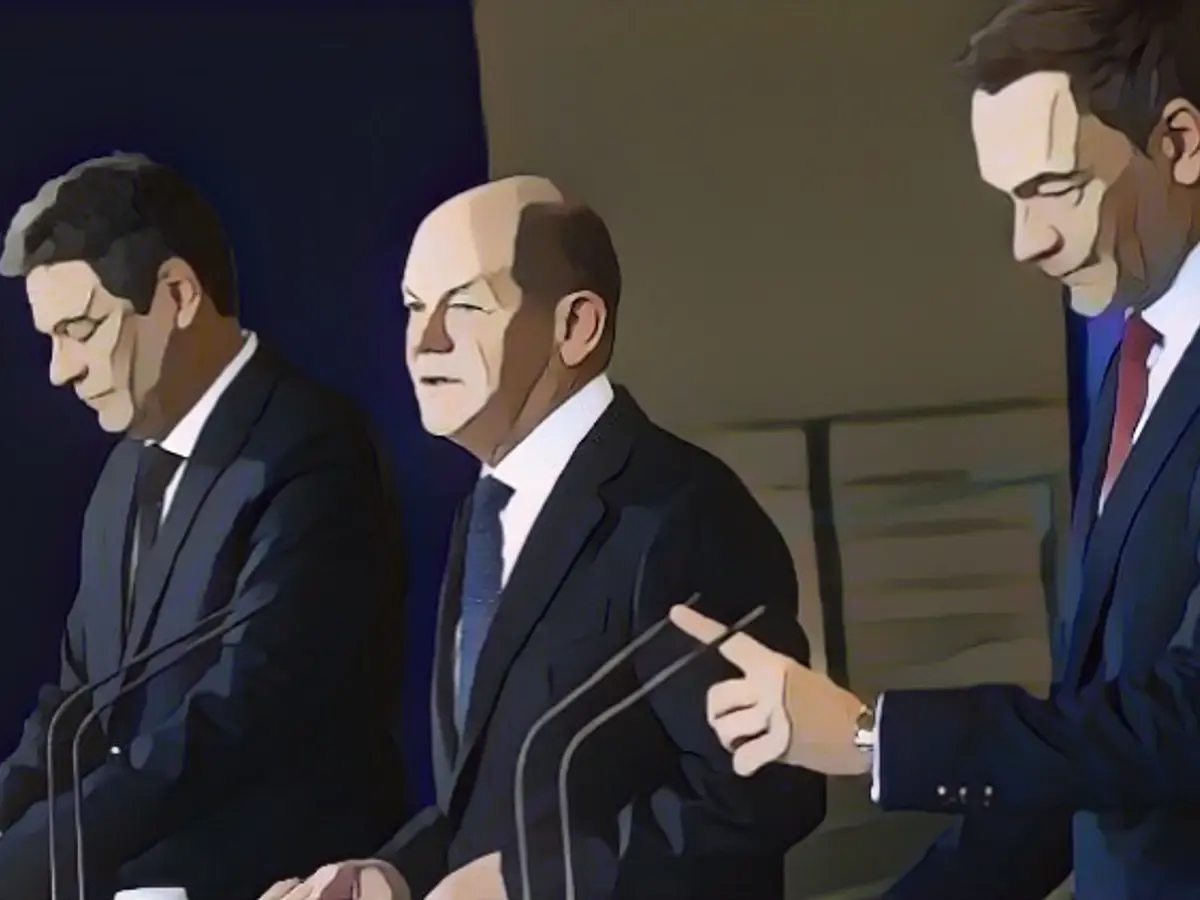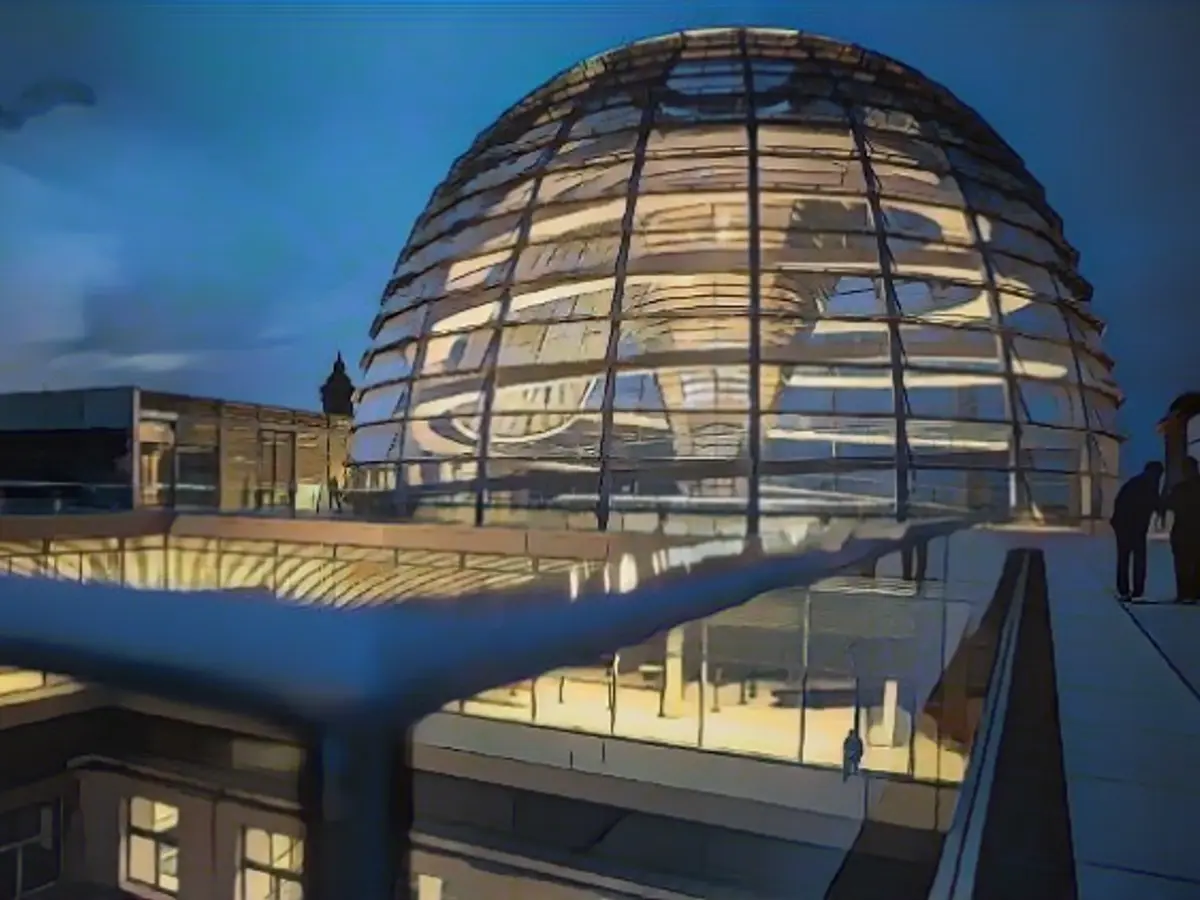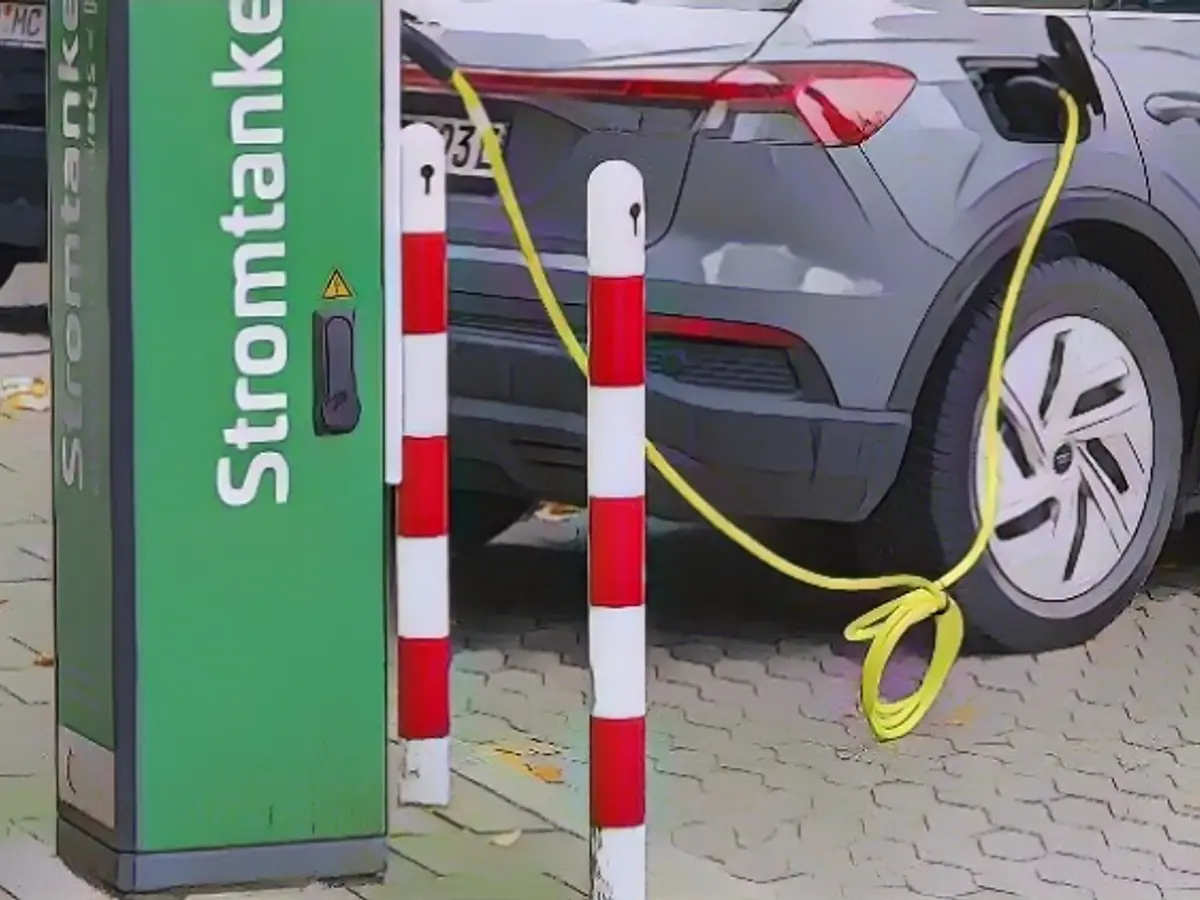The Budget Woes of the Traffic Light Coalition
The traffic light coalition's budget won't make it through the Bundestag this year, marking the peak of its budget crisis. This crisis, initiated by a historic constitutional court ruling on November 15, has left the coalition parties scrambling.
The Current Situation
Three weeks ago, the Federal Constitutional Court made a substantial blow to the traffic light coalition. They mandated a 60 billion euro reduction from the Climate and Transformation Fund (KTF). This fund was instrumental in the federal government's efforts to green the economy, promote e-cars, railroads, and building renovations, as well as finance the Economic and Stabilization Fund.
The coalition leaders, Olaf Scholz, Christian Lindner, and Robert Habeck, have been working tirelessly since then to agree on a new budget for 2024. Initially, they aimed to finalize this early in December. However, it's now clear that they won't manage to pass the budget before the New Year.
The parliamentary process takes time, and rushing it through isn't feasible. Moreover, the Federal Constitutional Court had warned the traffic light coalition about this in a summer ruling, advising them to be patient. Therefore, it's still possible that the traffic light leaders will reach an agreement before Christmas, allowing for provisional budget management. In this scenario, the state would continue to pay standard expenditures like pensions, student grants, and citizens' income, but everything else would require the Finance Minister's approval.
The Amount at Stake
Lindner recently disclosed that the budget shortfall amounts to approximately 17 billion euros. However, this figure is a summation of various factors unrelated to the KTF billions. Lindner clarified that 6 billion euros would be due to the citizens' income, while 3 billion euros would stem from a reduction in the electricity tax. He emphasized that these adjustments were necessary even without the constitutional court ruling.
The Time Conundrum
One reason for the delay is the absence of room for maneuver. Lindner highlighted that 380 billion euros out of the 450 billion euros allocated in next year's budget are statutory benefits, unchangeable in the short term. Even attempting changes would necessitate political unity, which is currently lacking.
The Role of the Climate and Transformation Fund
The Karlsruhe ruling dealt a significant blow to the Climate and Transformation Fund (KTF), which served as the traffic light coalition's backbone. It facilitated compromises among the coalition parties, enabling them to meet their respective goals without breaching the debt brake. However, the ruling required the removal of 60 billion euros from the KTF, which was initially designated for alleviating the economic impacts of the coronavirus crisis.
According to the draft budget for the upcoming year, the KTF should have 39 billion euros remaining. However, the plan was to spend a total of 57.6 billion euros in 2024. Despite this, information from ntv suggests that the actual shortfall is lower than suggested. Regardless, there remain two major financial voids: one in the budget and another in the KTF.
Is There Enough Money in the KTF?
Now, the crucial question is whether the KTF still has enough funds to cover expenses. Habeck, Lindner, and Scholz are currently drafting a new economic plan for the KTF, which will determine how and when funds will be allocated. Until then, the fund remains blocked. Any previously committed funds will remain valid, as emphasized by Lindner. The rest is under review.
That being said, the debate around the KTF's usage continues. Habeck recently stated on ARD television that the coalition leaders are carefully considering funding allocations to ensure that important issues, such as chip factory subsidies in Magdeburg and Dresden, are not left unattended.
